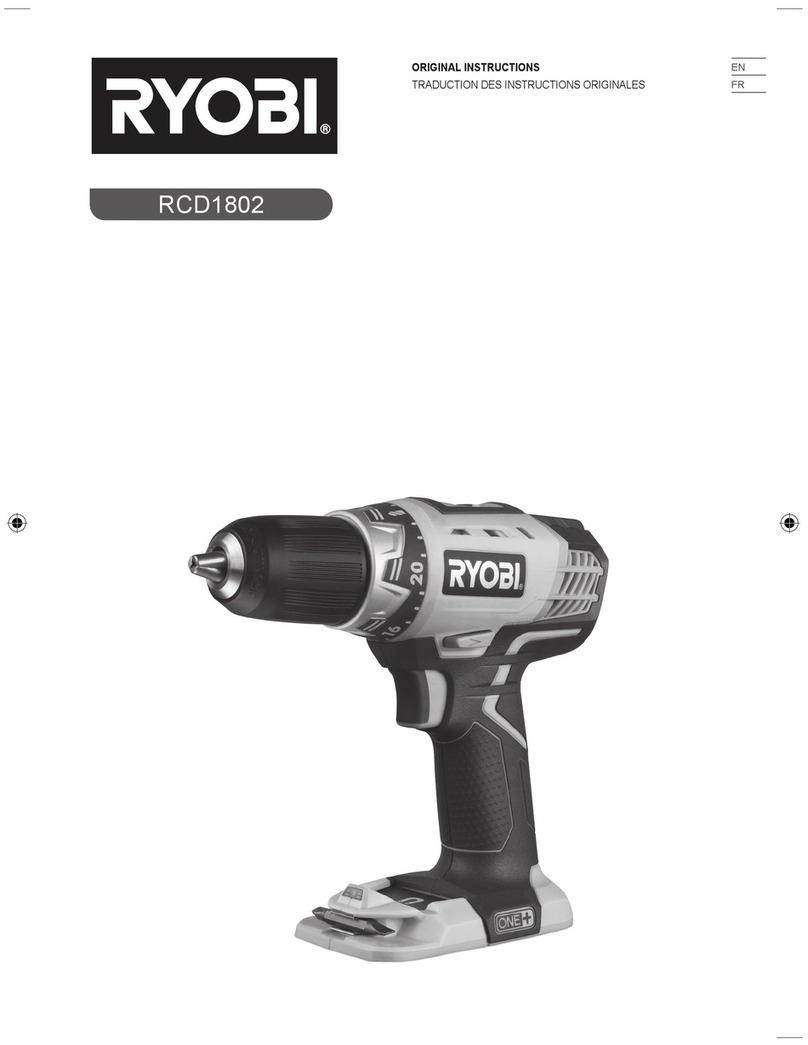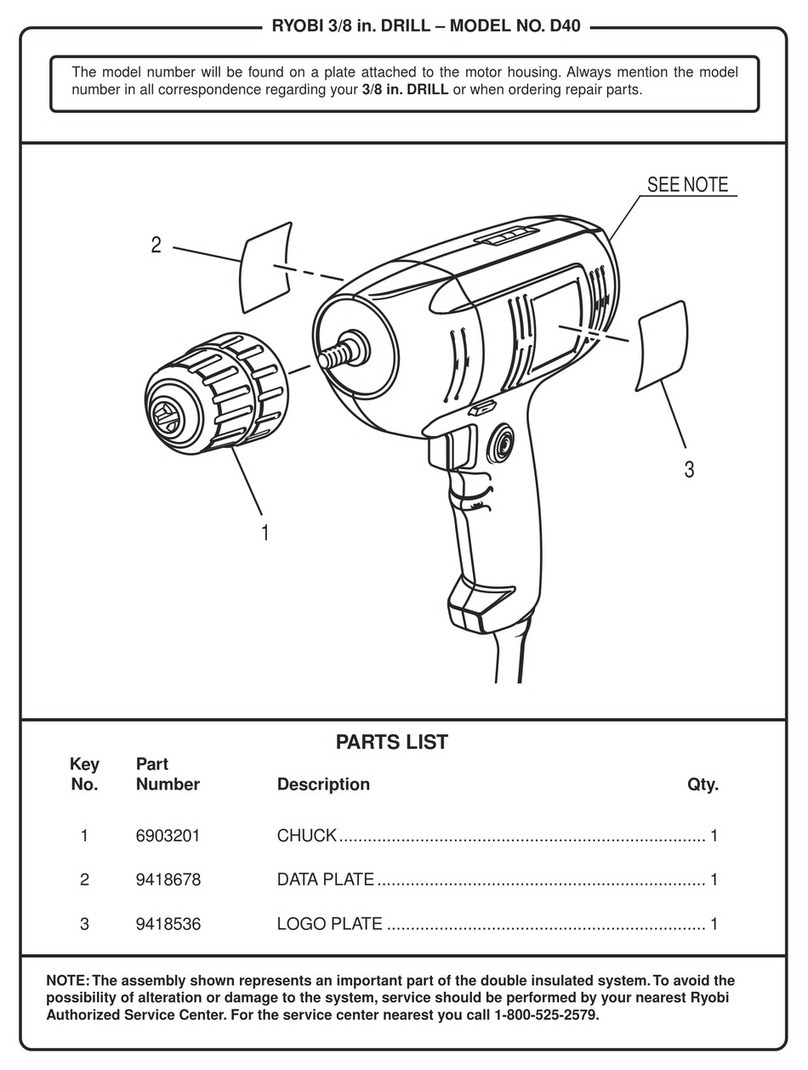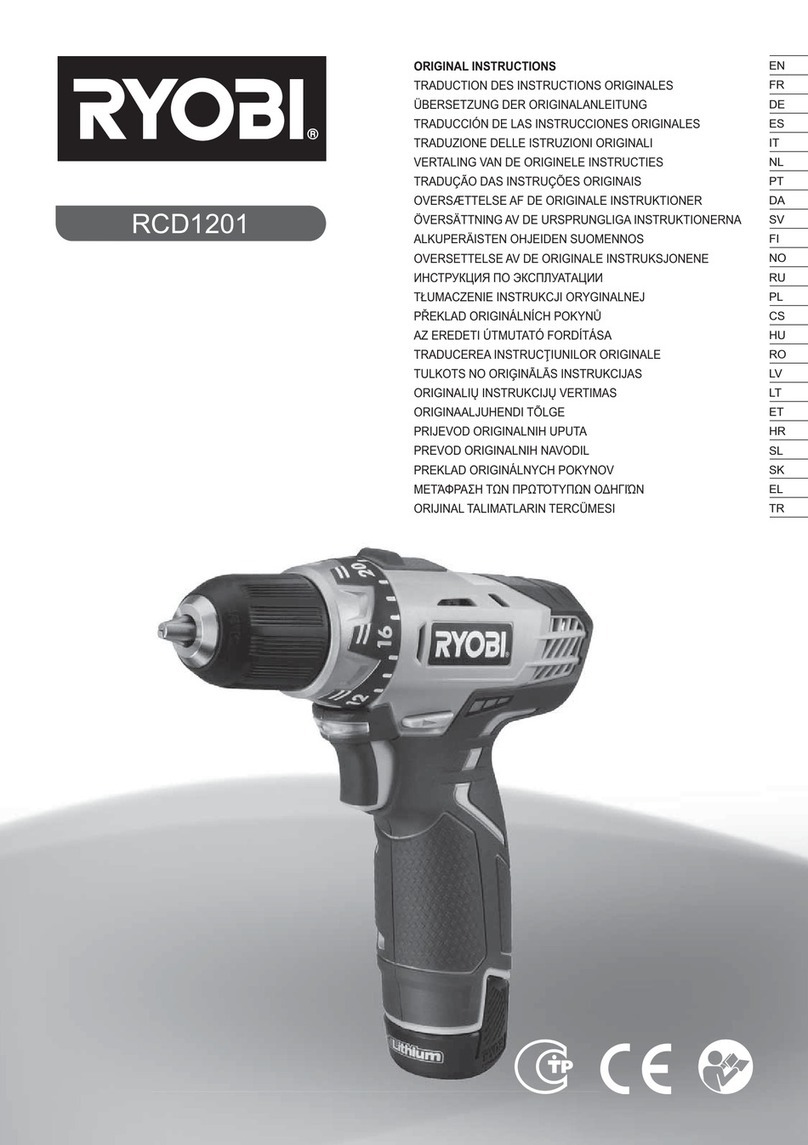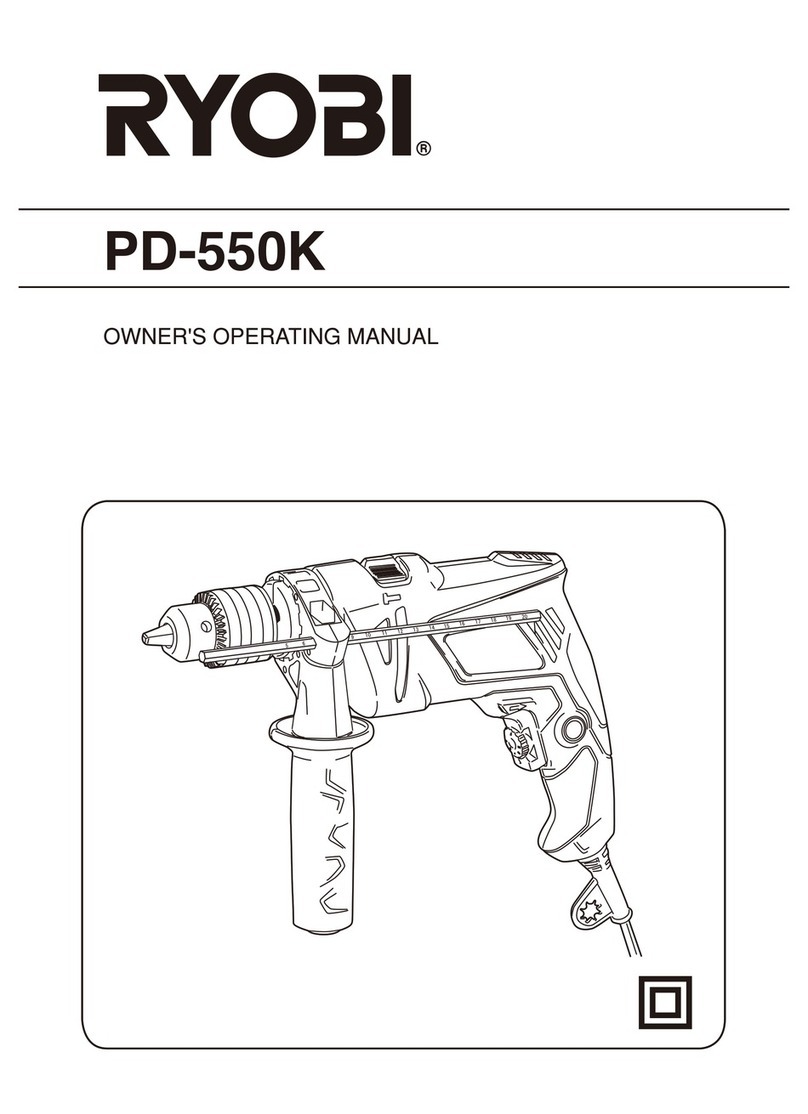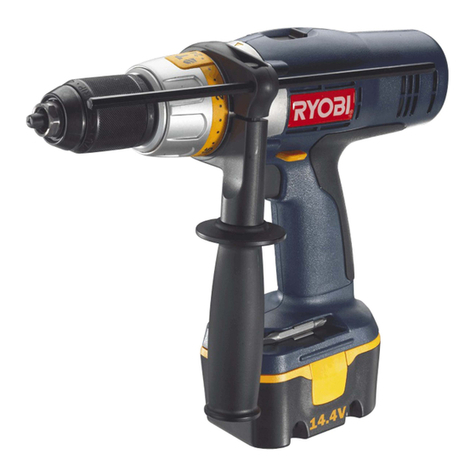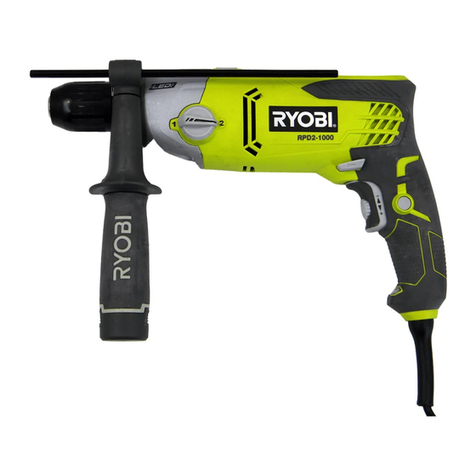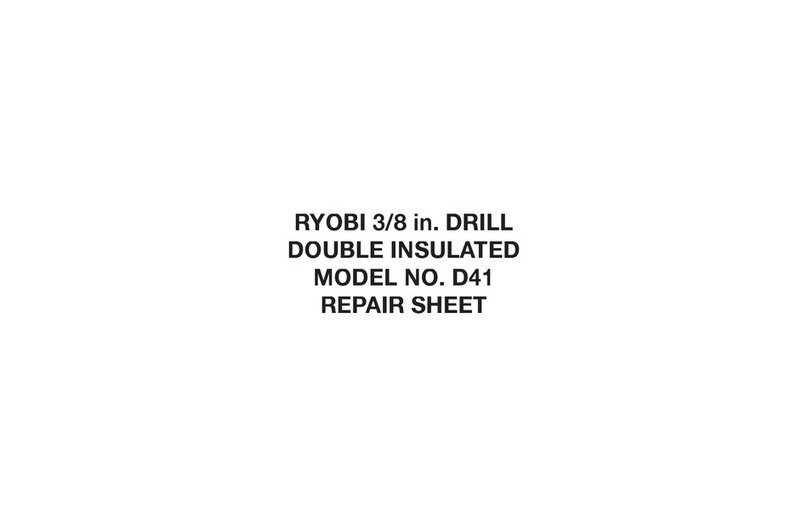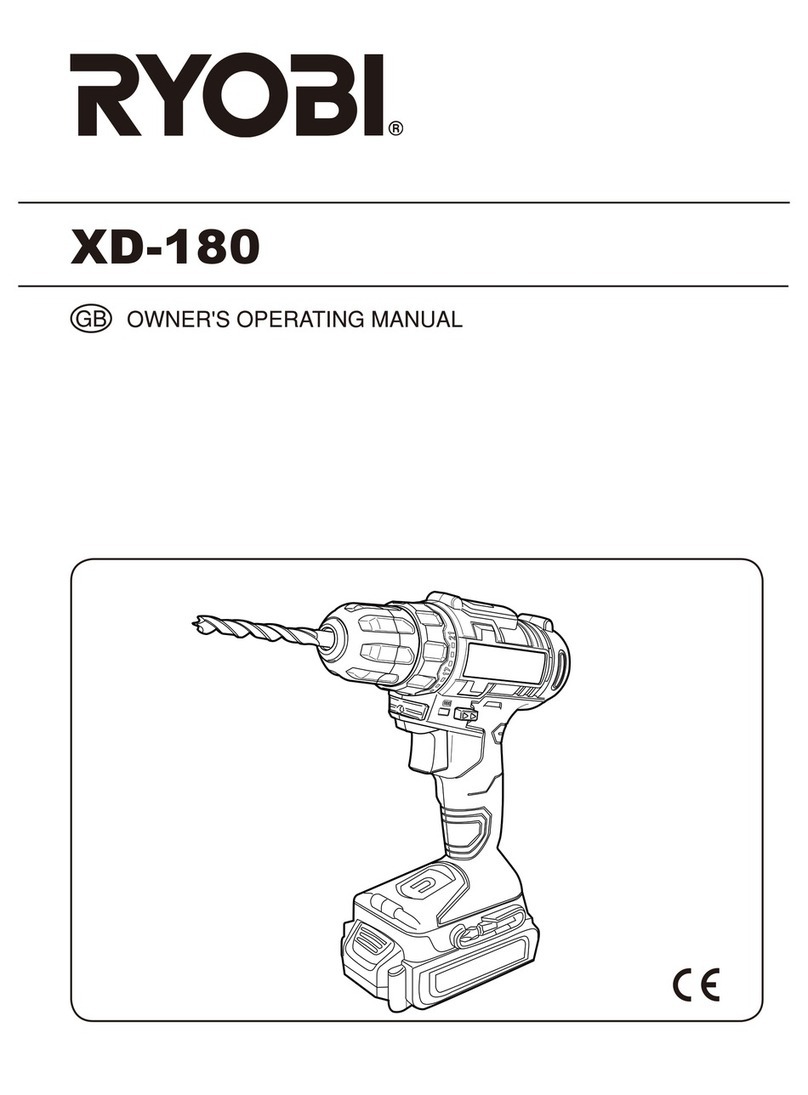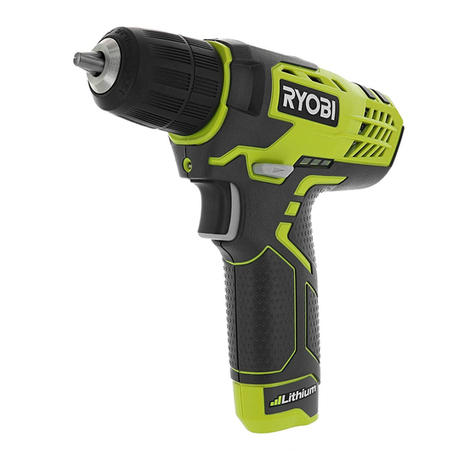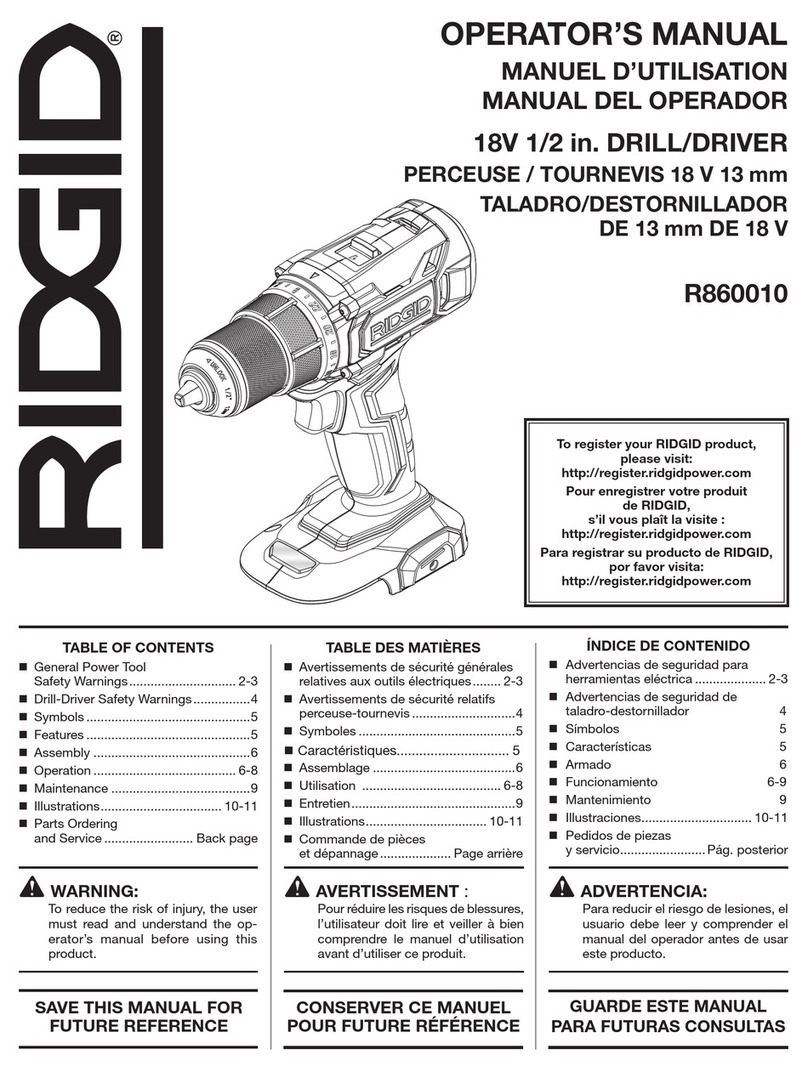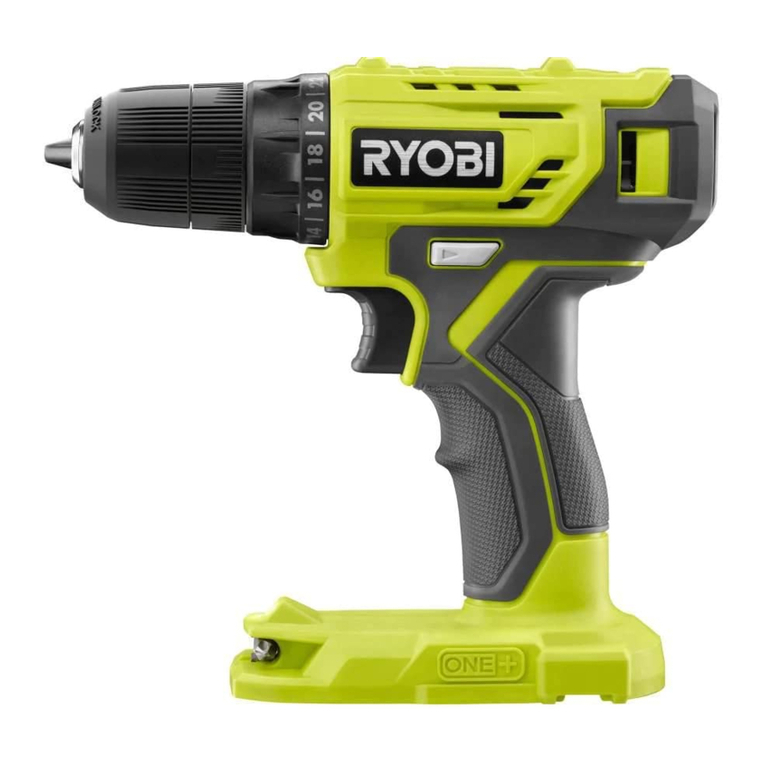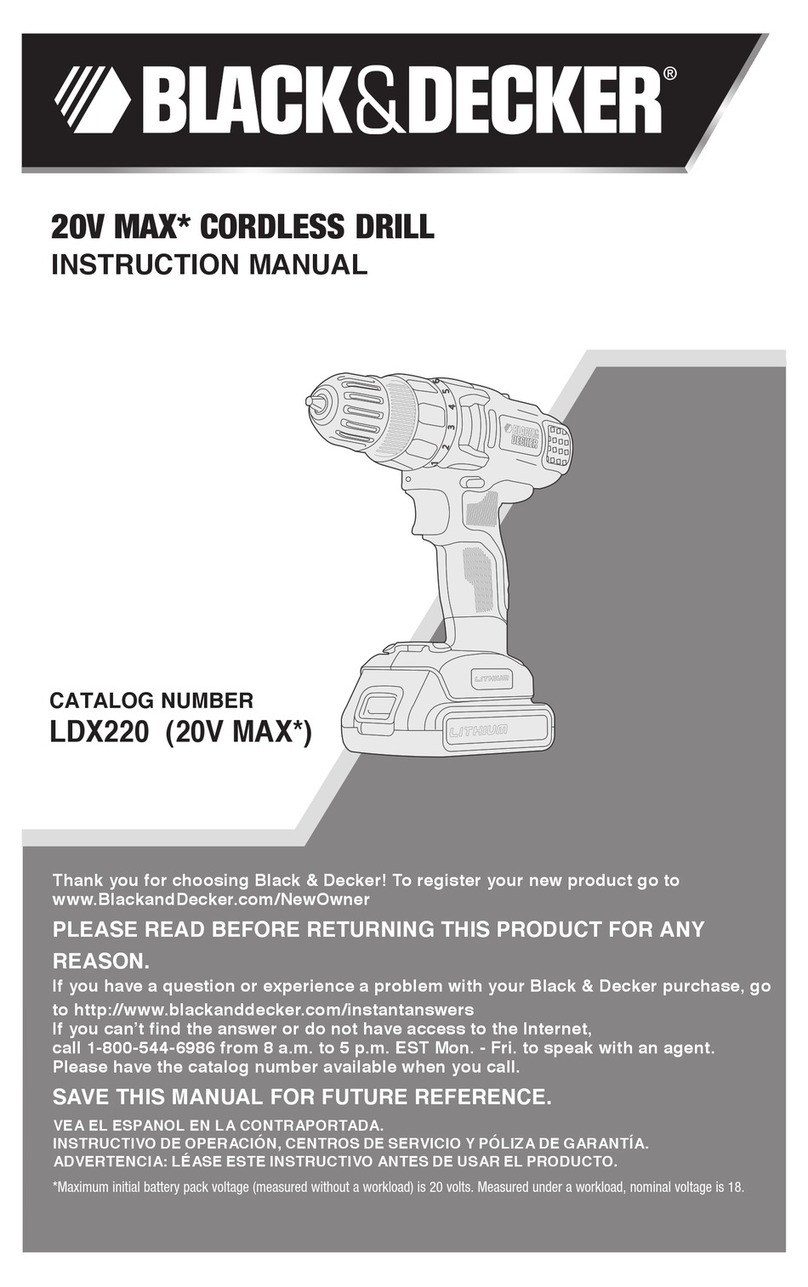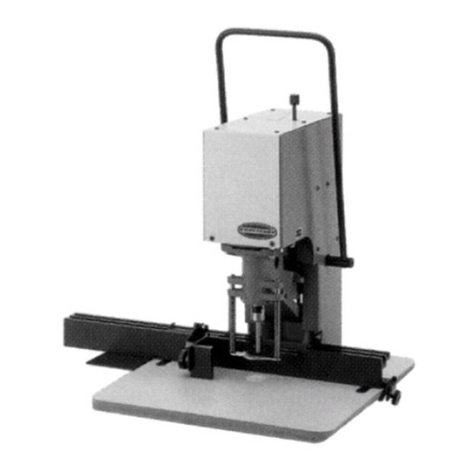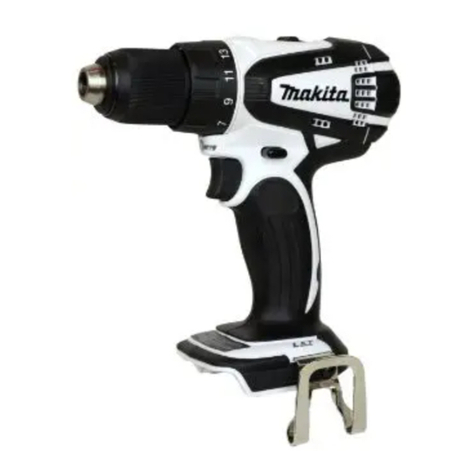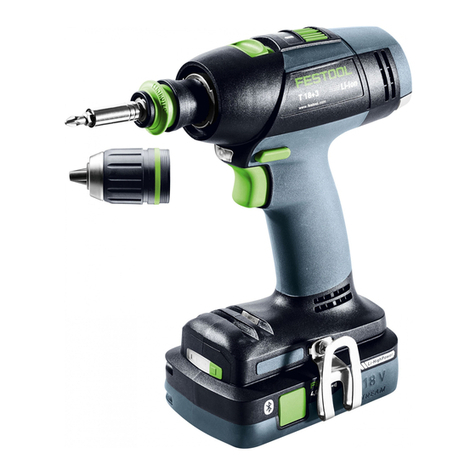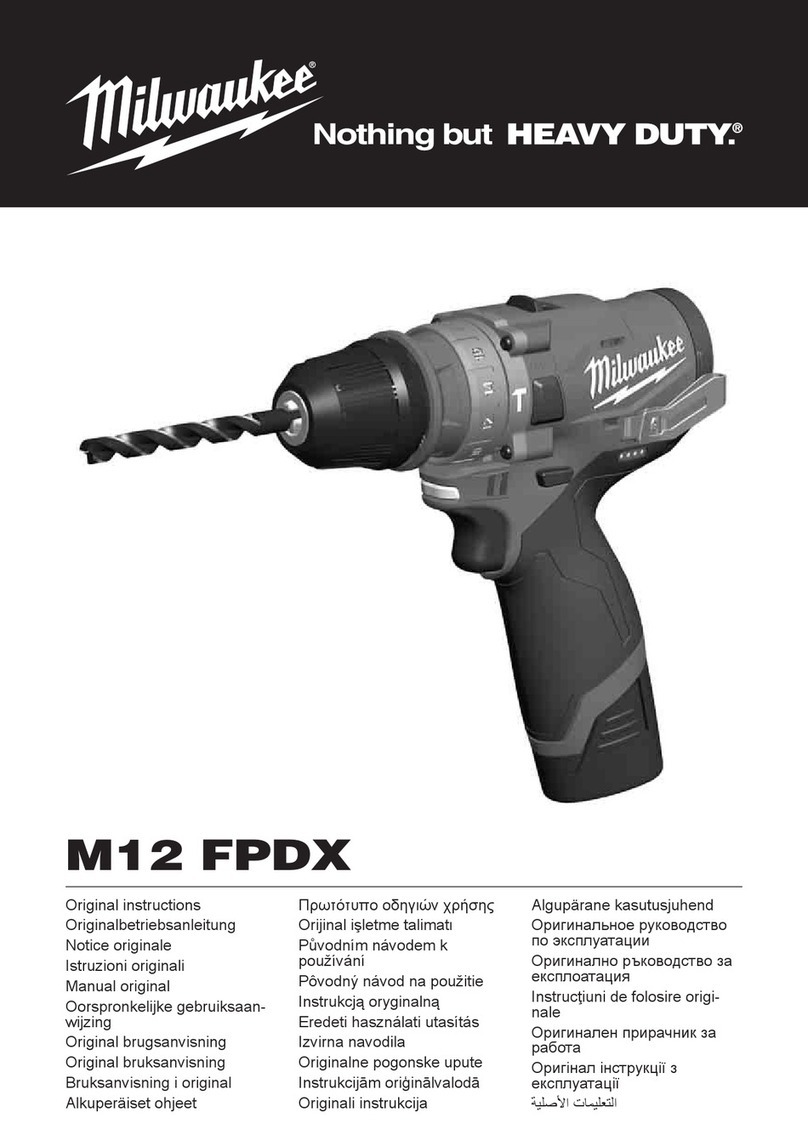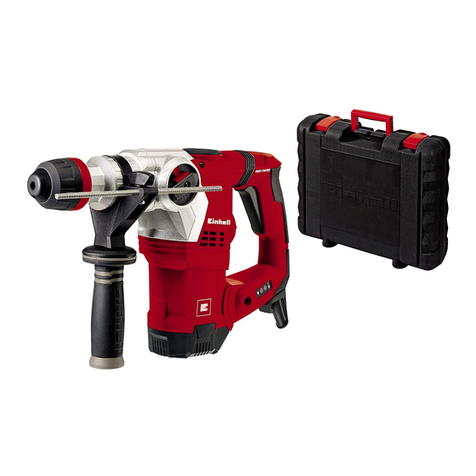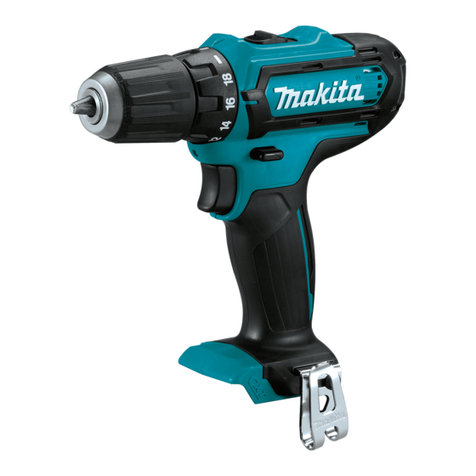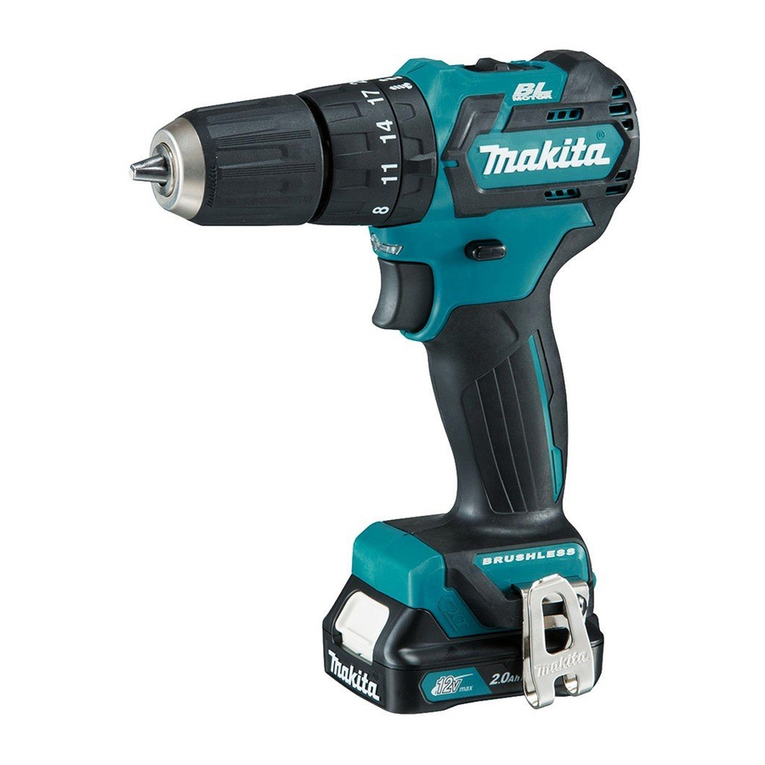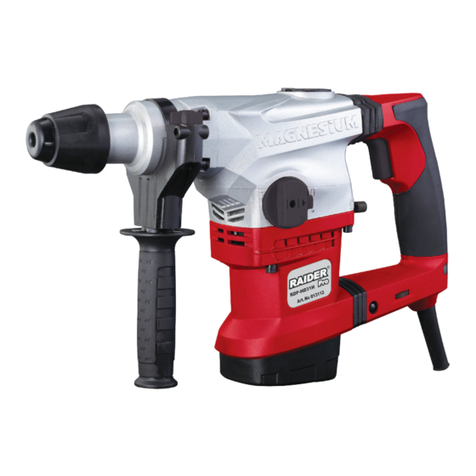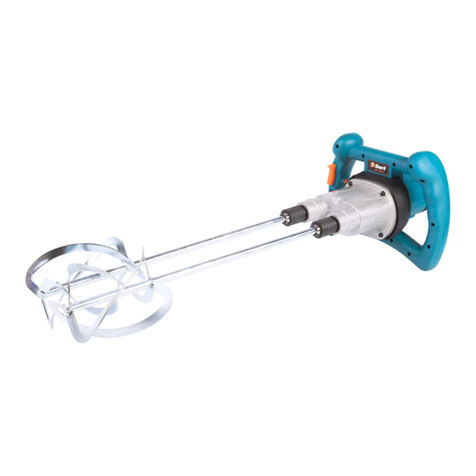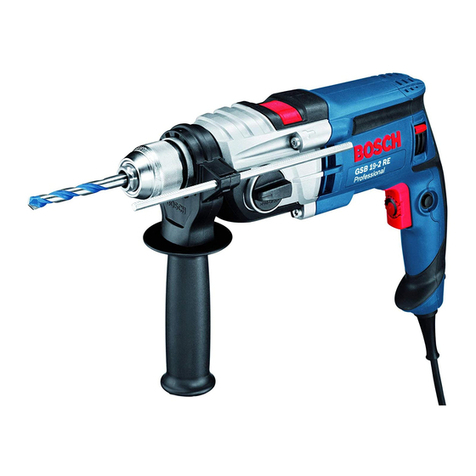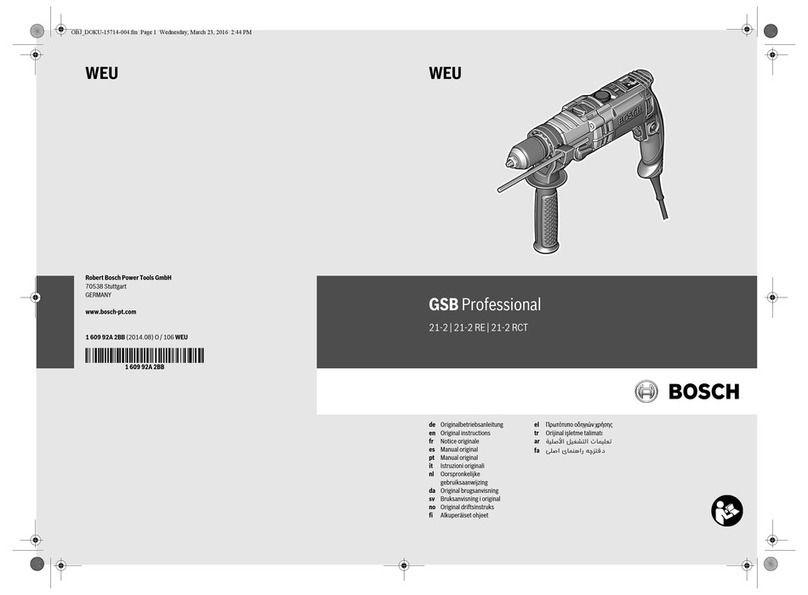1
RULES FOR SAFE OPERATION
WARNING
When using battery operated tools, basic safety
precautions should always be followed to reduce
the risk of fire, leaking batteries and personal
injury, including the following: Read all these
instructions before operating this product and
save these instructions.
Keep your work area clean and well lit. Cluttered
benches and dark areas invite accidents.
Consider work area environment. Do not expose
tools to rain. Do not use tools in damp or wet
locations. Do not use tools where there is risk to
cause fire or shock.
Do not operate power tools in explosive
atmospheres, such as in the presence of
flammable liquids, gases, or dust. Power tools
create sparks which may ignite the dust or fumes.
Keep bystanders, children, and visitors away
while operating a power tool. Distractions can
cause you to lose control.
Stay alert, watch what you are doing and use
common sense when operating a power tool.
Do not use tool while tired or under the influence
of drugs, alcohol, or medication. Amoment of
inattention while operating power tools may result in
serious personal injury.
Dress properly. Do not wear loose clothing
or jewelry. Contain long hair. Keep your hair, clothing,
and gloves away from moving parts. Loose clothes,
jewelry, or long hair can be caught in moving parts.
Do not abuse the supply cord. Never carry the
charger by the cord or yank it to disconnect it from
the socket. Keep the cord away from heat, oil and
sharp edges.
Secure work. Use clamps or a vice to hold the work.
It is safer than using your hand and it frees both
hands to operate the tool.
Maintain tool with care. Keep cutting tools sharp
and clean for better and safer performance. Follow
instructions for lubrication and changing accessories.
Inspect tool cord periodically and if damaged have it
repaired by an authorised Ryobi service agent.
Keep handles dry, clean and free from oil and grease.
Check damaged parts. Before further use of the
tool, a guard or other part that is damaged should
be carefully checked to determine that it will
operate properly and perform its intended function.
Check for alignment of moving parts, free running
of moving parts, breakage of parts, mounting and
any other conditions that may affect its operation.
Aguard or other part that is damaged should be
properly repaired or replaced by an authorized
Ryobi service agent unless otherwise indicated
in this instruction manual. Have defective
switches replaced by an authorised Ryobi
service agent. Do not use the tool if the switch
does not turn it on and off.
Avoid accidental starting. Be sure switch is in the
locked or off position before inserting battery pack.
Carrying tools with your finger on the switch or inserting
the battery pack into a tool with the switch on,
invites accidents.
Do not overreach. Keep proper footing and
balance at all times. Proper footing and balance
enable better control of the tool in unexpected
situations. Do not use on a ladder or unstable support.
Use safety equipment. Always wear eye protection.
Dust mask, nonskid safety shoes, hard hat, or hearing
protection must be used for appropriate conditions.
Do not force tool. Use the correct tool for your
application. The correct tool will do the job better
and safer at the rate for which it is designed.
Disconnect battery pack from tool or place the
switch in the lock off position before making any
adjustments, changing accessories, or storing
the tool. Such preventive safety measures reduce
risk of starting the tool accidentally.
Store idle tools out of reach of children and other
untrained persons. Tools are dangerous in the
hands of untrained users.
Use only accessories that are recommended by
the manufacturer for your model. Accessories that
may be suitable for one tool, may create a risk of
injury when used on another tool.
When servicing a tool, use only identical
replacement parts. Use of unauthorised parts or
failure to follow Maintenance Instructions may create
a risk of shock or injury.
Have your tool repaired by a qualified person.
This tool is in accordance with the relevant safety
requirements. Repairs should only be carried out by
an authorised Ryobi service agent using original
spare parts, otherwise this may result in considerable
danger to the user.
Battery tools do not have to be plugged into an
electrical outlet; therefore, they are always in
operating condition. Be aware of possible hazards
when not using your battery tool or when changing
accessories. Following this rule will reduce the risk of
electric shock, fire, or serious personal injury.

